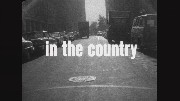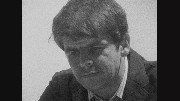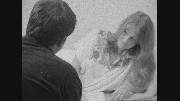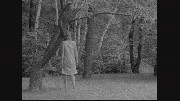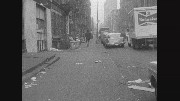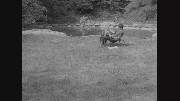Robert Kramer Work, Volume 01: In the Country (1967), Hi Steve, Video-lettres de Robert Kramer a Stephen Dwoskin / Videoletters (1991), Troublemakers (1966) Blu-Ray
on March 23rd, 2022 at 15:49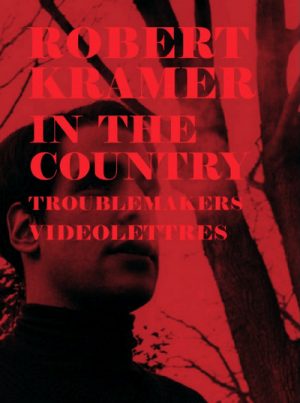
In the United States in 1966, Robert Kramer directed his first feature film, In the Country, outside all existing production systems and with the political fellow travelers who had just filmed him in the documentary Troublemakers. In the Country shows what is left out of Troublemakers: the documentary shows actions (community organizing, militant activism) that the fictional film keeps outside the frame in order to focus on a relationship crisis in which the man fails to put aside, for a few days, his obsessive political activism. Twenty-five years later, the Videoletters exchanged with Stephen Dwoskin recreate as in an open mosaic this melancholic and lyrical treatment of separation.
"‘In the country’ is the place where one comes into contact with other, absolutely non-political and everlasting rhythms of things. Their guardian is the woman: she is wise and can appear in many forms, but she knows quite a lot about finding a harmonious balance between your own needs and those of others. Another form of logic." (Robert Kramer)
BD50 | 1080p AVC | 170 mins | 44.3 Gb + 3% rec
Language: English
Subtitles: French
Genre: Drama, Documentary

Troublemakers is a film about community organizing in an Newark, New Jersey ghetto. The film covers three months in the history of the Newark Community Union Porject (NCUP). Four distinct themes reoccur: the creation of NCUP as a bloc for the 'Students for a Democratic Society'; the attempt to get the building code enforced in one particular building; the efforts to get a traffic light installed at a dangerous itersection used for drag racing; and the organization's participation in a political campaign. – Robert Machover
In the Country
The film deals with some of the contemporary forms of isolation and self-obsession. The story of this couple set apart in the country, turning increasingly upon themselves, derives its meaning from the former political engagement of the man. Both the former political attachments, and the city that they chose not to visit anymore, encroach upon them increasingly; they are caught precisely in the lapse between all their former associations, beliefs, attempts, and a new ground that they haven't been able to define. The film becomes almost a close case history of this trapping, repetitive state pain. – Robert Kramer
Robert.Kramer.Work.Vol.1.BluRay.part01.rar
Robert.Kramer.Work.Vol.1.BluRay.part02.rar
Robert.Kramer.Work.Vol.1.BluRay.part03.rar
Robert.Kramer.Work.Vol.1.BluRay.part04.rar
Robert.Kramer.Work.Vol.1.BluRay.part05.rar
Robert.Kramer.Work.Vol.1.BluRay.part06.rar
Robert.Kramer.Work.Vol.1.BluRay.part07.rar
Robert.Kramer.Work.Vol.1.BluRay.part08.rar
Robert.Kramer.Work.Vol.1.BluRay.part09.rar
Robert.Kramer.Work.Vol.1.BluRay.part10.rar
